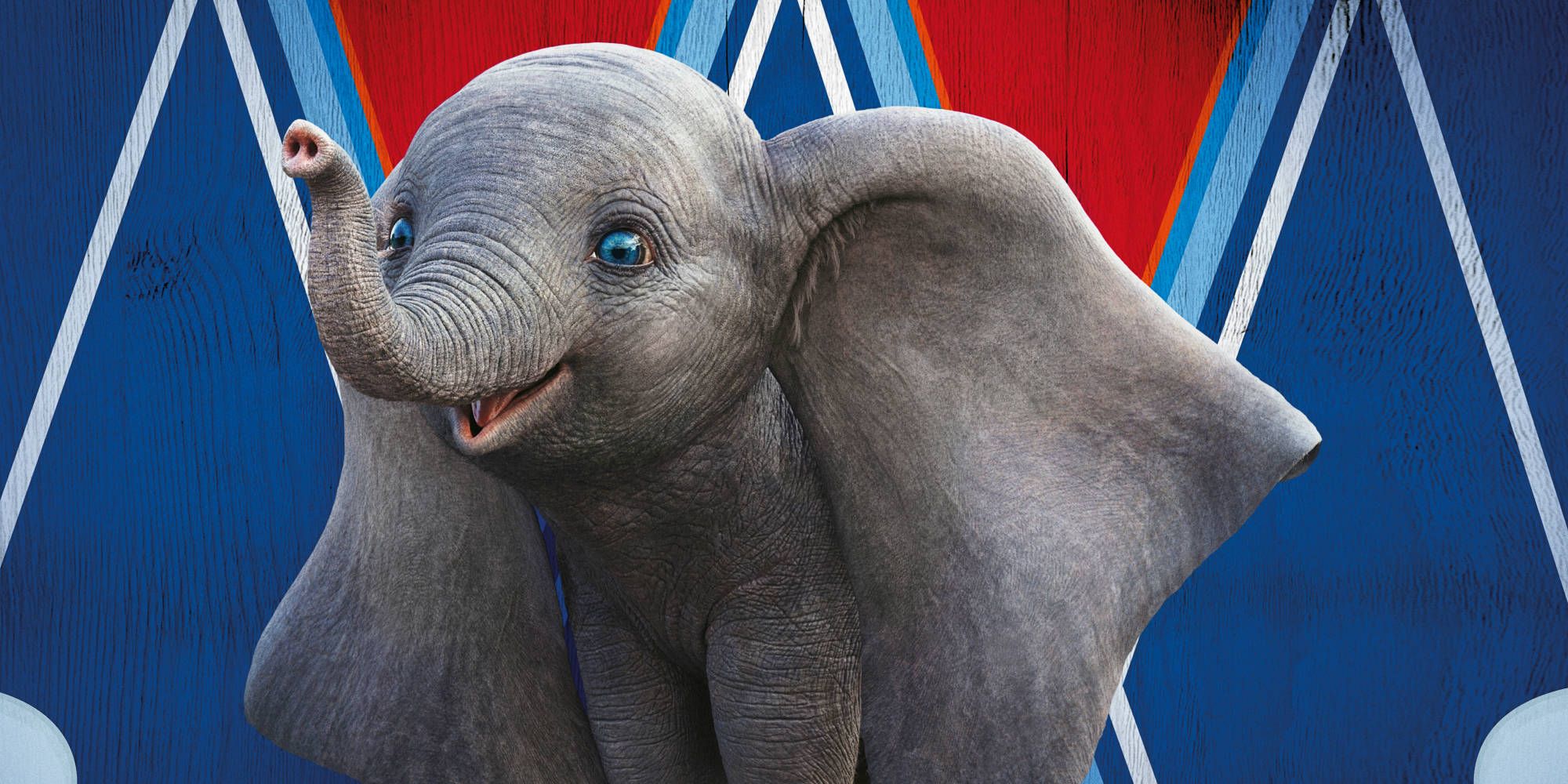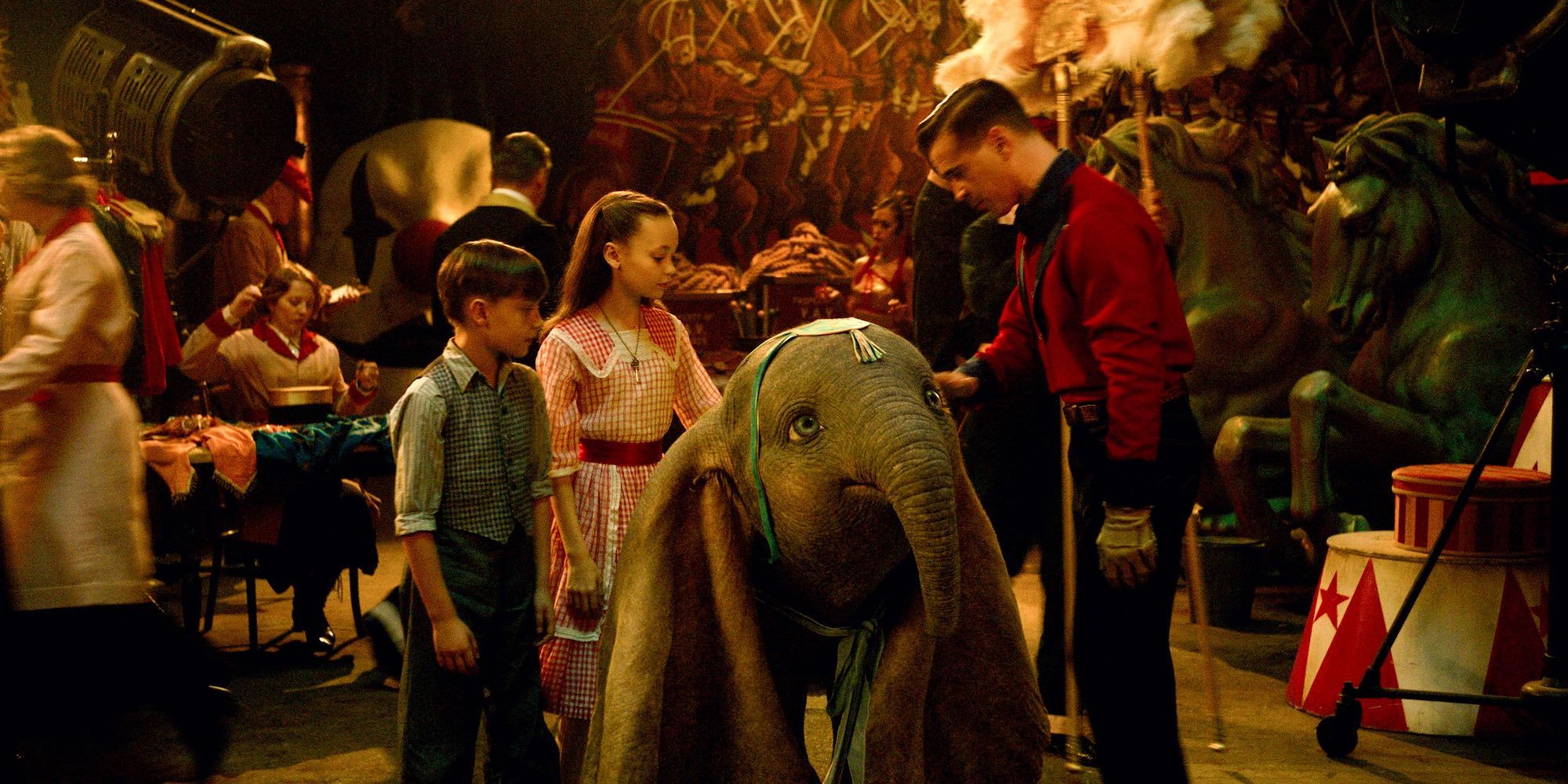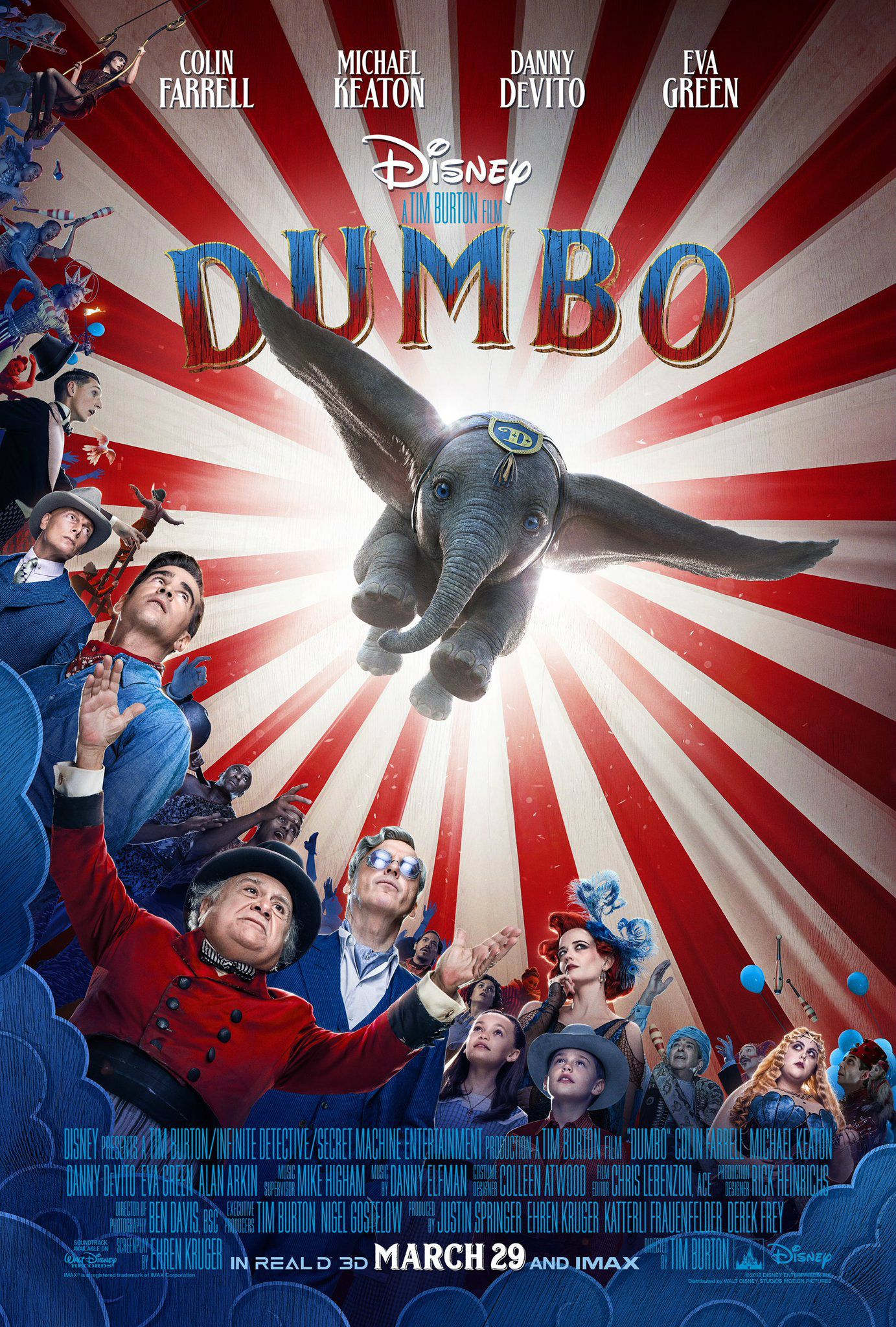Tim Burton's Dumbo is a live-action retelling of Disney's animated classic - but does it have a post-credits scene or other tease after the credits? The original Dumbo was released in 1941 and was one of Walt Disney Animation's shortest movies, coming in at just over an hour. The movie tells the story of a baby elephant born with ears much larger than a typical elephant, but those ears give baby Dumbo the unique ability to fly. Now, as Disney has made a trend of diving into their animated classics vault for new live-action movies, director Tim Burton tackles the story of Dumbo.
In Disney's live-action remake, the story centers just as much around the Farrier family as Dumbo: father Holt Farrier (Colin Farrell) and his two children, Milly (Nico Parker) and Joe (Finley Hobbins). Holt is a war veteran who returns to the Medici Brothers traveling circus and his kids, only to be tasked with taking care of the elephants. When baby Dumbo is born, though, Milly and Joe discover the elephant's unique ability and it changes all of their lives. The Dumbo trailers have teased a new family-friendly adventure based on one of Disney's classic animated films.
Related: Screen Rant's Review of Dumbo
Now that Dumbo is hitting theaters, moviegoers may be wondering whether they should stick around for some kind of extra scene or added bit of fun after the credits. Dumbo does NOT have a post-credits scene, but it does have a fun musical cue at the very end of the movie. Although the credits are always worth watching to get an idea of who had a hand in making that film, viewers checking out Dumbo shouldn't be expecting an extra scene at the very end.
Instead of a scene, Burton's Dumbo features a musical callback to the 1941 animated original with the inclusion of an instrumental version of "When I See An Elephant Fly." The song comes from the controversial sequence in Disney's original movie when a chorus of crows with racist characterizations are skeptical of Dumbo's ability to fly. This scene is referenced in Burton's main Dumbo movie through dialogue, and again with the song at the end of the credits, but leaves the racist caricatures in the past.
Of course, it makes sense for Dumbo not to include a post-credits scene. The movie features a standalone story so it was always unlikely Burton would include setup for a Dumbo 2. Further, Disney's live-action retellings haven't tended to include post-credits scenes in the past, and it didn't seem likely Dumbo would break from that tradition. Instead, the musical nod to the original Dumbo is a nice way to honor the 1941 film and give moviegoers who watched through to the very end a little something extra. So those checking out Dumbo this weekend just need to know there's no post-credits scene, but there is a musical Easter egg.
Next: All The Live-Action Disney Remakes In Development



